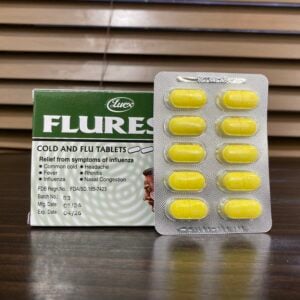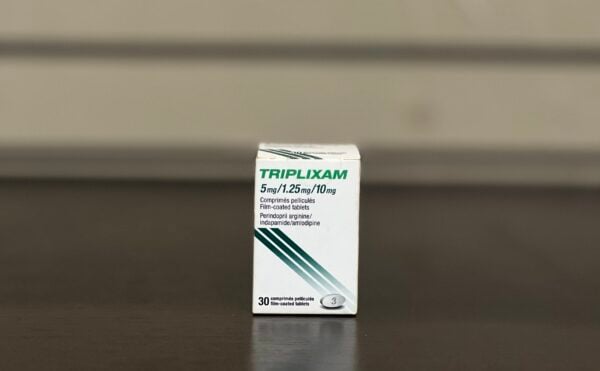Description
Azithromycin is a macrolide antibiotic used to treat a wide array of bacterial infections—particularly respiratory, skin, ear, and certain sexually transmitted infections. It works by inhibiting bacterial protein synthesis.
2. Prescription
This medication is prescription-only and should be used under the guidance of a healthcare provider.
3. Therapeutic Category
It belongs to the antibacterial class of macrolide antibiotics, used for systemic infections.
4. Active Ingredients / Composition
- Effective ingredient: Azithromycin (250 mg or 500 mg per film-coated tablet).
- Excipients: Film-coated tablets typically include calcium hydrogen phosphate, hypromellose, croscarmellose sodium, magnesium stearate, lactose, titanium dioxide, triacetin, etc.
5. Vitamins
None included.
6. Minerals
None included.
7. Variant
Available in two strength variants:
- 500 mg tablets (pack of 3)
- 250 mg tablets (pack of 6)
These packaging formats (blister strips) are consistent with typical azithromycin distribution forms.
8. Consume Type
Oral use—film-coated tablets swallowed whole with water.
9. Directions / Usage
Common dosing regimens include:
- Three-day treatment: 500 mg once daily for 3 days.
- Five-day regimen: 500 mg on day 1, then 250 mg daily on days 2–5.
- Single high dose for STIs: Often a one-time 1 g dose (two 500 mg tablets).
- General principles:
- Take at the same time each day.
- Can be taken with or without food; for soft-gel capsules, fasting or spacing from meals may be preferred.
- Avoid antacids containing aluminum or magnesium within 2 hours before or after azithromycin.
10. Common Side Effects
- Frequent: nausea, vomiting, diarrhea, abdominal pain, and headaches.
- Less common: changes in taste, insomnia, dizziness, and mild skin rash.
- Serious (rare): QT prolongation and arrhythmias, severe allergic reactions (e.g., Stevens–Johnson syndrome), C. difficile–associated diarrhea, and hepatic issues.
11. Package Type
Blister packs:
- 500 mg: strip of 3 tablets.
- 250 mg: strip of 6 tablets.
12. Storage Advice
Store tablets at room temperature (approx. 15–25 °C), in a dry place away from direct sunlight and moisture.
13. Safety Advice
- Complete the full prescribed course—even if symptoms improve early—to prevent antibiotic resistance
- Avoid with antacids containing aluminum or magnesium to maintain absorption.
- Inform your doctor if you have:
- Heart rhythm issues, low potassium or magnesium, or prolonged QT syndrome.
- Liver or kidney impairment, or a history of allergic reaction to macrolides.
- Use cautiously in congenital myasthenia gravis, neurologic disorders, or risk of arrhythmias.
14. Product Substitute
Generic equivalents include Zithromax, Z‑Pak, or any standard branded/generic azithromycin 250 mg or 500 mg tablets.
 Kenalog Injection
×
₵240.002 × ₵120.00
Kenalog Injection
×
₵240.002 × ₵120.00![Tranexamic Acid 500mg [Exeter]](https://www.scabpharmacy.com/wp-content/uploads/2024/03/Tranexamic-Acid-500mg-tabs-2-300x300.jpg) Tranexamic Acid 500mg [Exeter]
×
₵6.001 × ₵6.00
Tranexamic Acid 500mg [Exeter]
×
₵6.001 × ₵6.00 Flurest Tablets
×
₵58.001 × ₵58.00
Flurest Tablets
×
₵58.001 × ₵58.00 Cyclopentolate Eye Drop [UK]
×
₵130.001 × ₵130.00
Cyclopentolate Eye Drop [UK]
×
₵130.001 × ₵130.00











Reviews
There are no reviews yet.